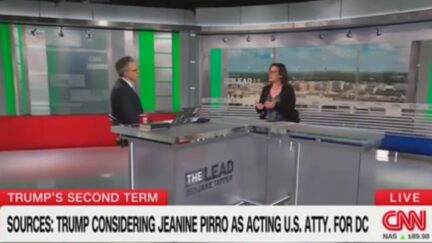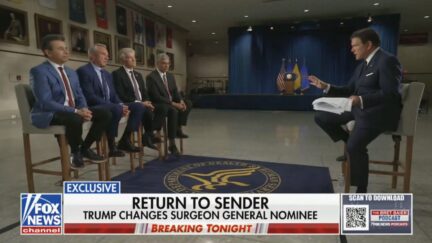It’s Good TV: Chris Hayes Marvels at Jeanine Pirro’s Most Unhinged Moments After Trump Appoints Her as U.S. Attorney
In a surprising turn of events, former Fox News personality Jeanine Pirro has been named the interim U.S. Attorney for the District of Columbia, a decision made by President Donald Trump. This appointment fits into a broader trend of Trump favoring former media figures for government positions, a practice that has sparked concern and conversation in political circles. Pirro’s previous nomination was overshadowed by the withdrawal of Ed Martin, a divisive figure who many believed lacked the qualifications required for such an influential role.
Pirro, who has a substantial history as a district attorney and judge in New York, is also recognized for her work as a co-host on Fox News’ popular program “The Five.” With over 14 years at the network, she has been a prominent figure, eliciting both praise and criticism for her outspoken commentary and engaging style. Her recent appointment has reignited discussions regarding her controversial history and the infamous moments that marked her tenure on air.
Chris Hayes Highlights Pirro’s Wildest On-Air Moments
During a recent segment on MSNBC’s “All In,” host Chris Hayes took a deep dive into some of Pirro’s most outrageous statements made while she was at Fox News. This segment featured a montage that brought to light her most dramatic declarations. Among the revelations was Pirro’s bizarre assertion about receiving opposition research from the devil, showcasing the eccentric nature of her rhetoric that often drew both laughter and disbelief.
Hayes, alongside guest Sam Stein, acknowledged the impact of Pirro’s controversial delivery and thought-provoking commentary, emphasizing how her distinctive style contributed to “good TV.” The duo discussed how media personalities like Pirro are able to capture public attention, drawing viewers in with an engaging yet polarizing approach to political discourse.
Pirro’s History at Fox and Its Impact on Her Appointment
Previously hosting her own show, “Justice with Judge Jeanine,” Pirro became a staple of Fox’s evening lineup before the network canceled the program following her entanglement in litigation with Dominion Voting Systems. This lawsuit claimed that Fox News had propagated false narratives about its voting machines during the contentious 2020 Presidential Election. Her previous on-air comments, particularly pertaining to the election and various political figures, have made her a polarizing figure, leaving many wondering about the implications of her appointment to a key legal position.
The dynamic nature of her past comments and the resulting backlash underscore the complexities surrounding Pirro’s new role. As her prominence in the political sphere continues to grow, it raises critical questions about the intersection of media, entertainment, and governance. The appointment of a figure as controversial as Pirro to an influential position like the U.S. Attorney presents both opportunities and challenges for the perception of the legal system in the public eye.
The Future Implications of Media Personalities in Government Roles
Jeanine Pirro’s appointment as U.S. Attorney serves as a fascinating case study of the evolving relationships between media personalities and political roles in the current administration. The increasing trend of placing former media figures in significant governmental positions raises ongoing discussions regarding the background qualifications and suitability for these roles. It begs the question of whether media savvy and viewer engagement should take precedence over traditional qualifications when appointing individuals to critical civic responsibilities.
Both Hayes and Stein’s commentary invited viewers to reflect on the societal implications of this shift and what it may mean for future political appointments. The merging of entertainment and governance continues to shape public discourse, prompting audiences to engage with issues from a fresh perspective.
Conclusion
As Jeanine Pirro embarks on her new journey as U.S. Attorney, examining her past and its implications may offer viewers a glimpse into the future of political appointments. The intertwining of media dynamics with governance continues to evolve, presenting both unique opportunities and complex challenges. To stay informed about developments in this ongoing narrative and to engage in discussions about the interplay of media and politics, follow our platform for more insights and analyses.





